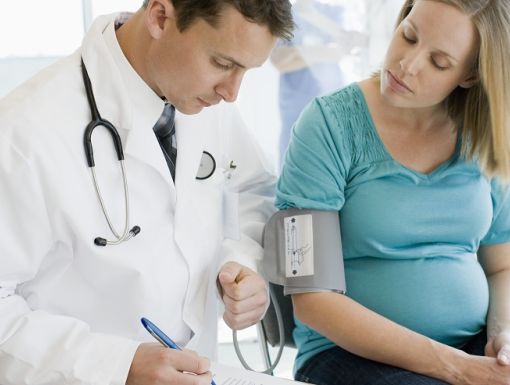
What It's Like to Be Radioactive
After being diagnosed with Stage 2 papillary thyroid cancer at 26, I had very little knowledge on radioactive iodine therapy (RAI). Eight years later, I’m cancer free and am happy to share my treatment experience to help others who find themselves in the same situation. There wasn’t a lot of information out there at the time when I was sick, so here is a list of considerations and questions to ask your doctor:
What to Do Before
As a way to prepare your body for RAI treatment, you will go on a low-iodine diet. This will allow the thyroid cells to be more likely to absorb the radioactive iodine. Typically, it takes 14 days (or longer) to deplete your body’s iodine levels. While you won’t be able to enjoy food from restaurants, take the opportunity to enjoy fresh, whole foods and up your cooking game. I used this cookbook from the Thyroid Cancer Survivors’ Association for healthy, approved recipes during this time. It also includes lists of foods and ingredients to avoid while on the low-iodine diet.
Right before treatment, ask about ways to protect your salivary glands, which also absorb the RAI. Some ways include sucking on sugar-free lemon candy, which I did. Your doctor will have instructions on what to do, and when to do it.
Some people experience nausea the first day after receiving RAI. Request anti-nausea medicine if you’re feeling queasy.
Prepare yourself for isolation. After you receive your RAI treatment dose, you may be sent home immediately, or you may stay in the hospital for one or more days, depending on the dosage you receive. Whether you’re at home or in the hospital, you will have to remain several feet away from other people and won’t be able to go out in public.
Keep yourself occupied! Stay away from your electronics like your cell phone or laptop for the first few days, since they may become contaminated with radiation and have to stay in the hospital for pick up at a later date.
Talk on the telephone with family and friends. Remember when landlines were a thing?
Bring newspapers, magazines, paperbacks, play cards, i.e. things you can leave behind or throw away after isolation.
What to Do After
To avoid any contamination of your own clothes by perspiration, wear a hospital gown and slippers if you’re staying in a hospital. If you’re at home, wear comfortable clothes you won’t have trouble parting with afterwards.
Your doctor should give you more specific guidelines on how long to avoid close contact with people. The number of days will depend on whether you have small children at home, pregnant women at your workplace, and other factors, but generally stay at least six feet away from people for a week.
Use separate bath linen and launder these and underclothing separately for one week.
Keep your distance from pets.
Do not kiss anyone, sleep in the same bed or have sex.
Use separate eating utensils or disposable eating utensils. Wash eating utensils separately for one week.
Do not prepare food for others.
Rinse the sink and tub thoroughly after using them.
Shower and wash your hair frequently to help remove the radiation excreted through perspiration.Drink lots of fluids to flush the radiation out.
Discuss with your doctor how long you should wait before starting a pregnancy after your treatment (usually at least two months for males and 6 to 12 months for females).
Do not sit next to someone in an automobile or public transportation for more than one hour. Sit in the back seat of an automobile, on the opposite side from the driver, if possible.
If you need to travel by plane or other transportation after receiving RAI, carry an information card or letter of explanation from your doctor. This is because radiation detection devices used at locations such as airports, bus and train stations, trash collection sites, and some international borders and in some buildings may detect low radiation levels. Carry the card or letter with you for at least 3 months after receiving RAI.
With any type of treatment, you should always discuss your individual circumstances and risk factors with your physician.


